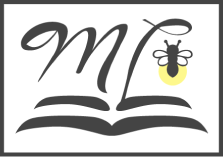I am a huge fan of a good Easter egg hunt and always look forward to this time of year, both in my preschool classroom, and with my own family at home.
As much fun as an Easter egg hunt is for a group of active, curious, and excited preschoolers, I’ve also found that there are always those few who might just find them a bit frustrating as they aren’t as quick as the others who always seem to get there first and manage to collect more eggs than they do.
I like to keep a couple Easter eggs on hand ‘in reserve’ so that if I find have a few frustrated little ones who didn’t get a chance to find any, I can quickly and easily ‘hide’ one or two near them to help them. This helps each child to feel that they succeeded in finding some and when placed at just the right moment can avoid tears and frustrations and end the big egg hunt on happy note for all.
Open-ended play experiences where the young child can control the flow, direction, theme, and sequence of the play helps them to develop emotional regulation as they process experiences and events. In play, a young child may choose to re-enact real-life situations in a way that they can control.
I set up a sensory play activity this Easter Keeping in mind those few children in my class who I noticed weren’t quite as quick some of the others in getting to Easter eggs on our egg hunt and that they really engaged well with it.
I set up a miniature Easter egg hunt in our small sensory tubs. I cut up different shades of green crepe paper as fake ‘grass’. I put in a few miniature brightly coloured Easter eggs, a little bunny, and a few other small things for them to use as hiding places for the Easter eggs. When they each began this play activity, I told them how many Easter eggs they would find in sensory tub and the first time around we counted them together. They just loved being able to be the one to hide the eggs, getting to choose where to hide them, sometimes getting the little toy bunny to find them, sometimes calling a friend over to find them, or simply getting to find, collect and hold all the little eggs themselves.
Preschoolers love to feel in control and to have a sense of autonomy in their play activities. Observing the little ones who seemed to not benefit as much from the big event of our exciting, fast-paced classroom Easter egg hunt helped me to once again learn from the children so that I could then structure a play activity that was meaningful and engaging for all of them.
